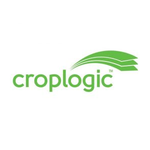A Seed to Sale Story: CropLogic Harvest Delivers First Hemp Biomass Shipment
Published 30-OCT-2019 10:39 A.M.
|
10 minute read
Hey! Looks like you have stumbled on the section of our website where we have archived articles from our old business model.
In 2019 the original founding team returned to run Next Investors, we changed our business model to only write about stocks we carefully research and are invested in for the long term.
The below articles were written under our previous business model. We have kept these articles online here for your reference.
Our new mission is to build a high performing ASX micro cap investment portfolio and share our research, analysis and investment strategy with our readers.
Click Here to View Latest Articles
Harvesting is underway at CropLogic Limited’s (ASX:CLI) hemp trial farm in central Oregon where the company is successfully demonstrating that its agronomy, farm management and ag-tech expertise can be successfully applied to industrial hemp.
Not only is CLI proving up its ag-tech capabilities, but it is also now a verified industrial hemp supplier.
The first hemp biomass shipment has now been made from the hemp trial farm under a US$10.5 million (A$15.4M) supply agreement entered into back in August. The company will continue to deliver under that contract, making weekly shipments of industrial hemp for the duration of the harvest with payment received immediately after each weekly shipment.
Yet this US$10.5 million contract is not the extent of CLI’s crop for the season. The harvest remains on track and this supply agreement represents less than one-third of the estimated total harvest, which as of last week is said to be progressing well and to schedule.
Keep in mind that this is from a ASX junior that’s capitalised at less than $20 million. CEO James Cooper-Jones explained the shipment’s significance:
“This milestone caps off a seed to sale story for the hemp trial farm and speaks volumes to CropLogic’s agronomy, farm management and ag-tech expertise.”
In addition to announcing this milestone, CropLogic has also put to bed unsubstantiated detrimental statements that were made on social media channels, seemingly directed at manipulating the company’s share price.
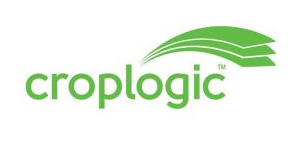
Market Capitalisation: $19.6 million
Share Price: $0.047
Here’s why I like CropLogic:
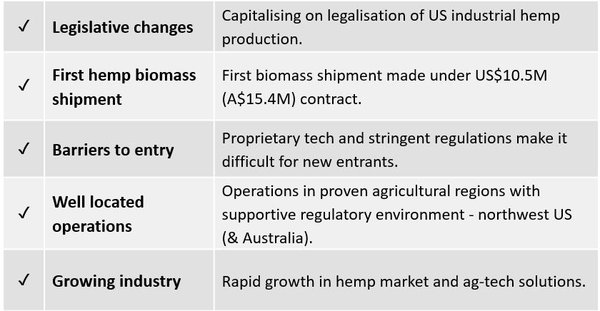
Operated by its wholly owned subsidiary LogicalCropping, CropLogic’s hemp trial farm in central Oregon, has successfully demonstrated the CropLogic’s (ASX:CLI) agronomy, farm management and ag-tech expertise in delivering its first biomass shipment.
For background as to how CLI arrived at this point, check out our last update on the company from August.
Read: CLI’s Strategic Move into Hemp CBD is Paying Off.
First hemp biomass shipment
CropLogic has commenced its first biomass shipment this week under the supply agreement with Deschutes Labs that will see CropLogic receive US$10.5 million (A$15.4M) with payment received after each weekly biomass shipment.
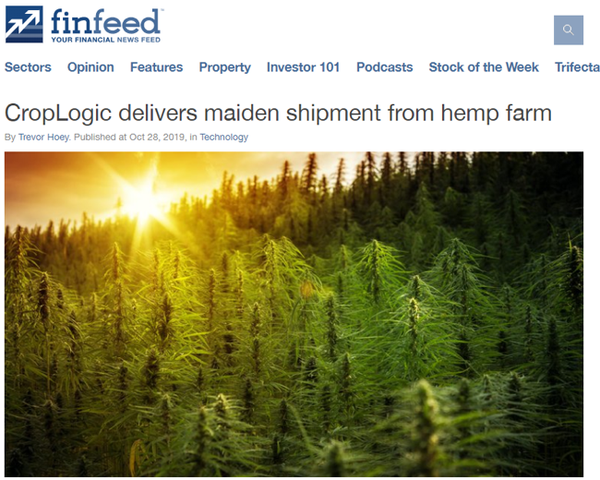
Deschutes Labs is a new industrial hemp processing facility located in Central Oregon that has a phase 1 processing capacity of over 10,000 pounds per day. It’s licensed to produce food grade extracts and designed and operated according to GMP and ISO 9000 standards.
That deal was announced on 6 August and covered in the article below:

In the lead up to this initial shipment, compliance testing confirmed that all fields under the hemp trial farm had a THC level not exceeding the limit to be treated as industrial hemp.
This testing reflects the good genetics sourced through hemp expertise resourced by CLI’s wholly owned subsidiary, LogicalCropping, as well as robust growing methods using CropLogic’s agronomy, farm management and ag-tech expertise.
The company say that the harvest timeline remains on track and is progressing well. The methodology of swathing (or ‘windrowing’), field drying and then combining biomass has been successful.
One of the stated purposes of the Hemp Trial Farm is to trial different cropping methodologies that can be applied at scale. This includes the harvest process for Hemp biomass.
Generally, a four step process is being employed that includes:
- Swathing – a process of cutting the plants with a swather (sometimes called a windrower in Australia and New Zealand). All fields have now been swathed.
- Field drying – a process of drying the biomass in its field to dry naturally. To date, field drying is proving effective. The irrigation systems have been turned off and therefore water is no longer being delivered to the fields. This, then warm, clear days with low humidity are assisting this process. Now that the plants have been swathed any frost, when and if it occurs, seems to also assist this process. Weather permitting, the 5 to 7 days allotted here seems to have been an accurate estimate.
- Combine – process of picking up and chopping biomass with a combine harvester. Two combine harvesters are onsite combining the biomass material. This process is proving effective and the quality of material coming out of the combine harvesters at this stage appears of good consistency.
- Brushing – process of 'milling' or further chopping the biomass to desired consistency. This will depend on the consistency of the material produced by the combine harvesters.
So far, CropLogic, along with buyers, has been pleased with the consistency of biomass material from the combine, which has reduced or entirely eliminated the need for brushing. This not only reduces the cost of brushing but also streamlines the harvesting process both this season and in any eventual expansion.
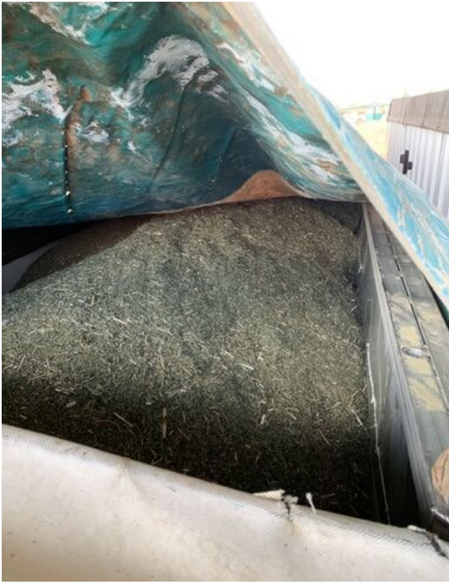
The company’s warehousing procedure is now being implemented, including bagging the biomass into supersacks (or ‘Bulka Bags’), weighing and tagging, and then storing for sale.
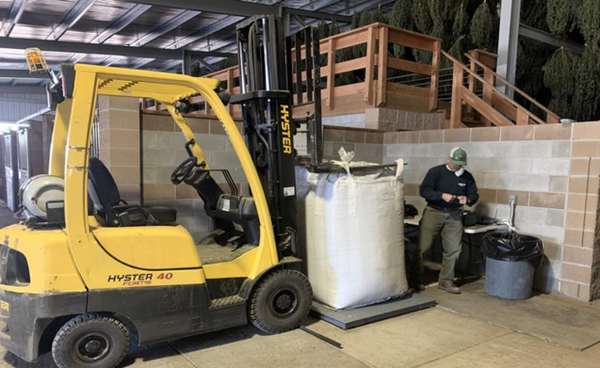
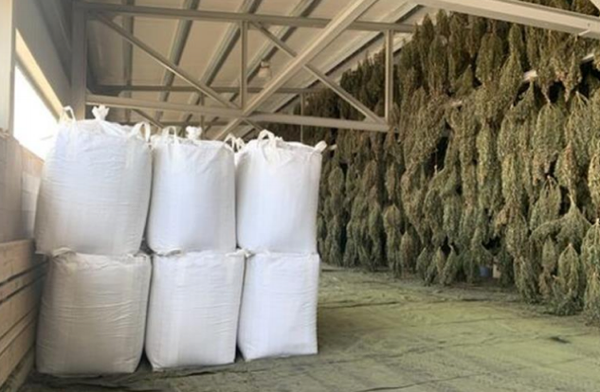
Mould-gate and “fake news”
While this week’s shipment provides a good dose of reassurance that all is on track, it’s worth revisiting the stock’s recent volatility which saw it drop by as much as 17% in a day last week.
Responding to a please explain from the ASX, the company summarised the cause of the volatility and clarified the situation...
“On Thursday 17 October 2019, an employee of one of CLI's contractors who used to work at CLI's trial hemp farm in Oregon posted on his personal Instagram account a video taken by him which showed mould on the farm. The publication of this video was not authorised by CLI or the contractor.
“On Friday 18 October 2019, a Twitter user placed the same video on his personal Twitter account with the following words 'mold mold mold everywhere all mold all day'. This was picked up and shared by multiple users on the HotCopper share trading discussion site.
“As soon as CLI became aware of these events, it requested this video be removed and requested a trading halt from the ASX. It then began investigating the posts and the sequence of events.
“The information regarding the extent of mould on the plants posted by individuals on Twitter was false and misleading. It is not uncommon for farming operations to experience mould on plants. CLI estimates that less than 0.05% of the plants at CLI's trial farm have been impacted by mould, which is immaterial in the context of a 500 acre farm.”
The contractor in question has since backed up the company’s explanation, saying that the mould was present on only a very small proportion of crops.
CropLogic also used the opportunity to comment on other “fake news” that’s doing the rounds...
“Other recent posts by individuals on Twitter and HotCopper on various dates have accused the company of hiding hail and frost damage to crops, insider trading, and being stock price manipulators. CLI is concerned that this activity has been designed deliberately to create fear and doubt in the minds of ASX investors in CLI by distributing fake news.
“We do not know whether these individuals have themselves been trading in the Company’s shares or whether this is part of a strategy of manipulating the CLI share price. CLI intends to investigate these activities and take legal advice on what action can be taken.”
Harvest Update
Alongside these statements, the company also provided a Harvest Update which reassured investors and sent the share price up 17% in the session.
In regards to the (other) rumoured issue around frost, the company say that while some frosts have been noticed, “No material effect of frost has been observed to date at the trial farm”.
The observed frosts have tended to be quite localised, with the trial farm often not being affected when other parts of the region have been, or some fields on the trial farm being affected while others have not.
CLI compared this to previous hail events in central Oregon, which were also localised and which did not affect the trial farm and may suggest a regional trend of localised weather events.
Frosts are a common occurrence in many cropping operations and are not necessarily note-worthy or cause for alarm in and of themselves. The impacts of a frost will differ between plant species and even varieties within a certain species.
A frost event is not a certain indicator of proportionate or total crop failure. The frosts that have occurred at the trial farm have been informative to management and broadened LogicalCropping and CropLogic’s agronomic and farm management understanding of the hemp plant and cropping in central Oregon generally.
Ag-tech tools such as CropLogic realTime and CropLogic Aerial Imagery – particularly drones and the recently resourced thermal imaging capabilities have also informed this process. In fact, it is thought within cropping industry circles that frosts — so long as they are followed by warm days — can assist with the drying process and observations at the trial farm suggest this to be true.
It is not the only good news to come from the trial farm.
Hemp trial farm compliance testing successfully completed
Earlier this month, testing by a third party, ORELAP (Oregon Environmental Laboratory Accreditation Program) accredited lab, confirmed that all fields under the hemp trial farm have a THC level below the maximum limit to be treated as industrial hemp.
Under Oregonian law, hemp fields need to be tested by an Oregon Department of Agriculture (ODA) authorised lab to ensure delta-9 levels are below 0.35% — a process known in the industry as ‘compliance testing’. ORELAP is one of only some 21 labs authorised by ODA to perform industrial hemp compliance testing.
Fields at CropLogic’s hemp trial farm in central Oregon recorded results from zero (below limit of quantitation) to 0.0738% of delta-9 THC — well below the required maximum of 0.35%.
This means that all fields are compliant for them to be treated as industrial hemp and the company has been advised that this lab will be lodging these fields as such with the ODA.
CropLogic has certainly been busy and will be helped by a newly formed joint venture that is already bearing fruit.
Trimmed Flower Joint Venture
In July, the company entered into a joint venture to grow premium CBD hemp trimmed flower with experienced Oregonian agriculturalists, the Shephard Brothers.
One of the purposes of the hemp trial farm is to trial different cropping methodologies that can be applied at scale. This includes the harvest process of this trimmed flower — generally, a six step process is being employed that includes:
- Harvest - A process of hand cutting the plants. Approximately 14 acres of the approximate 16.6 acres of this project have been hand cut with the remaining approximately 3 acres being swathed and then field dried.
- Hanging - A process of hand hanging the plants on lines in shedding. All 14 acres are hanging in shedding located at the trial farm.
- Drying - A process of drying the plant - thought to take 7 to 10 days. As per common industry practice fans and dehumidifiers are being employed.
- Bucking - A process of mechanically removing the flower from the plant stem.
- Trimming - A process of mechanically trimming the 'hairs' or small leaves around the flower.
- Packaging - A process of packaging for sale.
Other than the biomass from the swathed three acres being brought into shedding once it has field dried, the trimmed flower process will be left now as human resources and focus is being moved to complete the hemp biomass harvest.
Work is likely to resume on the trimmed flower JV once this process is complete.
A final word on CLI
With shipment of biomass to Deschutes Labs confirmed and the controversy behind it, the hemp trial farm has provided a strong understanding of Hemp agronomy and farm management which has been added to CropLogic’s playbook for any eventual regional and international expansion.
Results to date reflect the application of CropLogic’s agronomy, farm management and ag-tech expertise. But still with a market cap of just ~$20 million, there seems to remain major potential for further investor gains as CLI’s ag-tech is adopted across agricultural markets, including the fast-growing hemp/CBD space.
General Information Only
This material has been prepared by StocksDigital. StocksDigital is an authorised representative (CAR 000433913) of 62 Consulting Pty Limited (ABN 88 664 809 303) (AFSL 548573).
This material is general advice only and is not an offer for the purchase or sale of any financial product or service. The material is not intended to provide you with personal financial or tax advice and does not take into account your personal objectives, financial situation or needs. Although we believe that the material is correct, no warranty of accuracy, reliability or completeness is given, except for liability under statute which cannot be excluded. Please note that past performance may not be indicative of future performance and that no guarantee of performance, the return of capital or a particular rate of return is given by 62C, StocksDigital, any of their related body corporates or any other person. To the maximum extent possible, 62C, StocksDigital, their related body corporates or any other person do not accept any liability for any statement in this material.
Conflicts of Interest Notice
S3 and its associated entities may hold investments in companies featured in its articles, including through being paid in the securities of the companies we provide commentary on. We disclose the securities held in relation to a particular company that we provide commentary on. Refer to our Disclosure Policy for information on our self-imposed trading blackouts, hold conditions and de-risking (sell conditions) which seek to mitigate against any potential conflicts of interest.
Publication Notice and Disclaimer
The information contained in this article is current as at the publication date. At the time of publishing, the information contained in this article is based on sources which are available in the public domain that we consider to be reliable, and our own analysis of those sources. The views of the author may not reflect the views of the AFSL holder. Any decision by you to purchase securities in the companies featured in this article should be done so after you have sought your own independent professional advice regarding this information and made your own inquiries as to the validity of any information in this article.
Any forward-looking statements contained in this article are not guarantees or predictions of future performance, and involve known and unknown risks, uncertainties and other factors, many of which are beyond our control, and which may cause actual results or performance of companies featured to differ materially from those expressed in the statements contained in this article. S3 cannot and does not give any assurance that the results or performance expressed or implied by any forward-looking statements contained in this article will actually occur and readers are cautioned not to put undue reliance on forward-looking statements.
This article may include references to our past investing performance. Past performance is not a reliable indicator of our future investing performance.

